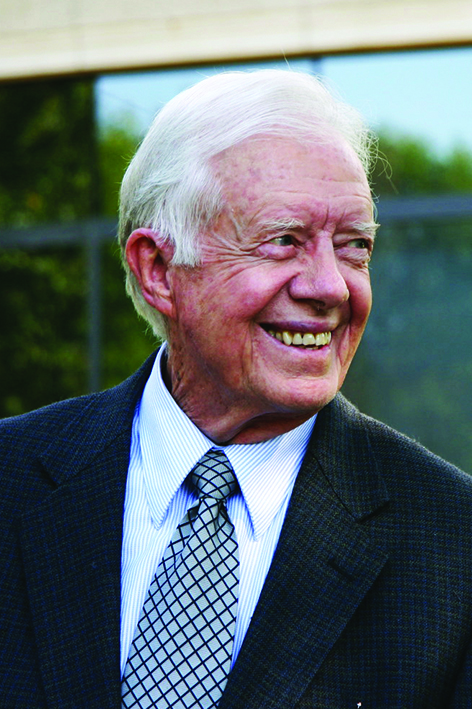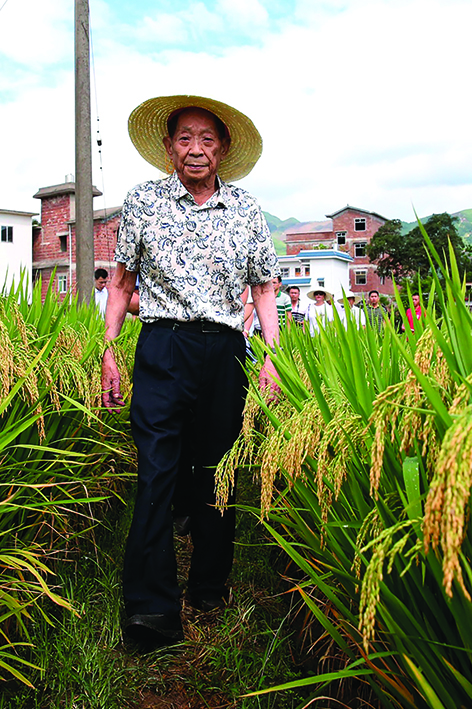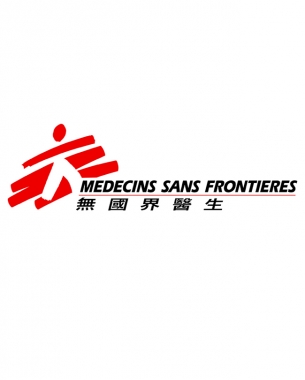Prize Category: Positive Energy Prize
Specific Area of Focus: Individuals or Organisations Whose Behaviour and Achievement Inspire, Energise and Give Hope to Others
James Earl “Jimmy” Carter Jr. is awarded the inaugural LUI Che Woo Prize 2016 in the Positive Energy category, with the specific area of focus of “Individuals or Organisations Whose Behaviour and Achievement Inspire, Energise and Give Hope to Others”, for all the good work that he and The Carter Center that he established in 1982 have done, which has contributed significantly to the promotion of positive life attitude and enhancement of positive energy in the world.
James Earl “Jimmy” Carter Jr. has always put human rights, equality, ethnic and racial reconciliation, peace, and social harmony on the highest priority and spared no effort in promoting them. Since 1980, Mr Carter and The Carter Center have consistently been at the forefront of the protection of human rights; the promotion of democracy; the mediation, resolution and prevention of conflicts (for example, in Haiti, Bosnia, Ethiopia, North Korea, Sudan and other countries); the promotion of gender and racial equality; and the support of free and fair elections through impartial monitoring all over the world (The Carter Center has monitored over 100 elections in 39 countries since 1989). As Governor of the State of Georgia (1971-1975), Mr Carter called for the immediate end of continuing racial discrimination there. He resigned from the Southern Baptist Convention in 2000 when it refused to accept women pastors. More recently, he founded the New Baptist Covenant in the United States to bring together all Baptist congregations – white, black, Hispanic and Asian – across racial divides there.
Mr Carter also has a noble vision to alleviate and reduce human suffering. He and The Carter Center have worked to improve global health conditions through the successful control and eradication of diseases such as Guinea worm disease, river blindness, malaria, trachoma, lymphatic filariasis, and schistosomiasis; and through the provision of better care for and the reduction of the social stigma of mental illnesses. Mr Carter believes that people can be empowered through knowledge and skills. Again working through The Carter Center, African farmers were taught new farming techniques that increase their crop production, so that they can in turn improve their own nutrition and be able to live a fuller and richer life.
In addition, since 1984, Mr Carter has been the highest-profile supporter of the Habitat for Humanity project, which is devoted to building “simple, decent, and affordable” housing for underprivileged people all over the world. Mr Carter personally takes part in the actual homebuilding every year, in the annual Jimmy Carter Work Project “blitz build” (more recently renamed “The Jimmy & Rosalynn Carter Work Project”). These activities have benefitted tens of thousands of families around the world. Through his own direct participation, Mr Carter has inspired and energised those trying to solve the homelessness problem as well as given hope to the homeless.
Promotion of positive life attitude and enhancement of positive energy are easier said than done. Mr Carter has deep insight and a long-term vision as to how to make the world better. He has also been able to provide the indispensable leadership to The Carter Center, and through The Center and his own personal dedication, faith, tenacity and unwavering devotion, to make his vision a reality. He is an exemplary role model for others. The great willpower and strength of character that he has demonstrated will inspire many generations to come to follow his selfless example. By bringing peace, prosperity, good health and hope to millions, and by fighting for human rights and a just society, Mr Carter has inspired, energised, given hope and imparted positive energy to people around the world.

Jimmy Carter (James Earl Carter, Jr.), the 39th president of the United States, was born on 1 October 1924, in the small farming town of Plains, Georgia. He received a B.S. degree from the United States Naval Academy in 1946. In the Navy he became a submariner, serving in both the Atlantic and Pacific fleets and rising to the rank of lieutenant. Later, he was assigned to Schenectady, New York, where he took graduate work at Union College in reactor technology and nuclear physics, and served as senior officer of the pre-commissioning crew of the Seawolf, the second nuclear submarine.
When his father died in 1953, he resigned his naval commission and returned with his family to Georgia. He quickly became a leader of the community, serving on county boards supervising education, the hospital authority, and the library. In 1962 he won election to the Georgia Senate and he became Georgia’s 76th governor in 1971. He was elected president on 2 November 1976 and served from 20 January 1977 to 20 January 1981. Significant foreign policy accomplishments of his administration included the Panama Canal treaties, the Camp David Accords, the treaty of peace between Egypt and Israel, the SALT II treaty with the Soviet Union, and the establishment of U.S. diplomatic relations with the People’s Republic of China. He championed human rights throughout the world. On the domestic side, the administration’s achievements included a comprehensive energy program conducted by a new Department of Energy; deregulation in energy, transportation, communications, and finance; major educational programs under a new Department of Education; and major environmental protection legislation, including the Alaska National Interest Lands Conservation Act.
In 1982, he became University Distinguished Professor at Emory University in Atlanta, Georgia, and founded The Carter Center. Actively guided by President Carter, the nonpartisan and nonprofit Center addresses national and international issues of public policy. The Carter Center staff and associates join with President Carter in efforts to resolve conflict, promote democracy, protect human rights, and prevent disease and other afflictions. The Carter Center has spearheaded the international effort to eradicate Guinea worm disease, which is poised to be the second human disease in history to be eradicated.



